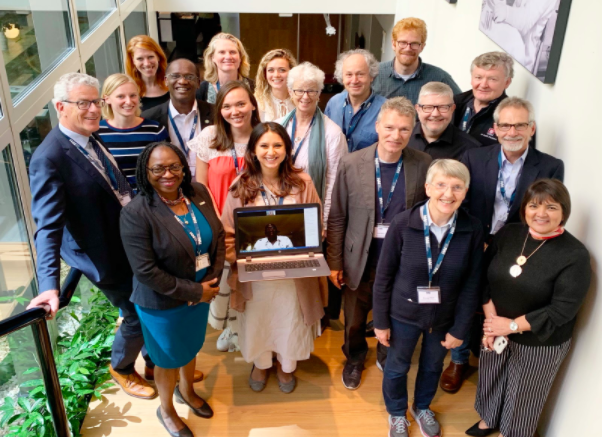
WHOCC – SEARO
As a World Health Organization (WHO) Collaborating Centre on Training and Access to Pain Relief, Pallium India’s flagship program TIPS (Trivandrum Institute of Palliative Sciences) undertakes the following activities:
- Assist with data collection at the state level In India on opioid consumption used for pain relief
- Share best practices and make recommendation on strategies on how to improve access to palliative care, based on the community-based model and on implementation of pain free hospitals initiative
- Develop fact sheets to advocate appropriate understanding of palliative care by policy makers
- Conduct both face to face and online education workshops on palliative care in South East Asian countries as per country requests. We have already commenced work with the government of Timor Leste
Lancet Commission
Our Chairman has been part of two Lancet Commissions;
- The Lancet commission on “Global Access to Palliative Care and Pain relief”, led by Dr. Felicia Knaul started in 2016. The Commission published its report ahead of World Palliative Care day on 12 October 2018, and introduced the concept of serious health related suffering as the focus of palliative care, effectively including acute health conditions into its purview. Another key feature was the creation of a list of minimum requirements for palliative care which can be made available at limited cost even in low income countries.
- The Lancet Commission on the “Value of Death”, which is currently on-going. It is led by Dr. Richard Smith, former editor of the British medical journal. In addition to ongoing email discussions, there were two physical meetings, one in London and one in Bellagio, Italy in 2019. The commission is expected to publish the proceedings in 2020.
World Health Assembly (WHA) side events
Attendance at 2 side events
- ‘The need and access to pain relief and palliative care’ organized by Human Rights Watch in 2014. Following this, Pallium India was asked to meet with the then principal secretary to health, to develop a palliative care program. The subsequent work led to the announcement of the National Program for Palliative Care (NPPC) in the same year, 2014.
- ‘Access to pain relief for children’, led by Joan Marston of the International Children’s Palliative Care Network (ICPCN) and attended by the Director General of WHO in 2015.
Commission on Narcotic Drugs (CND)
2 meetings attended:
- Organized by the WHO collaborating center at Madison, Wisconsin
- Organised by Human Rights Watch
Collaboration with Pain and Policy Studies Group
From the time of inception, we have worked closely with the WHO Collaborating Centre at Madison-Wisconsin to improve opioid access for pain relief.
Work with Human Rights Watch (HRW)
- Pallium India was the major partner of HRW in a study of access to pain management undertaken in 4 major cancer centres in the country. This study resulted in
- A publication “Unbearable Pain: India’s Obligation to Ensure Palliative Care” by Human Rights Watch, in 2009.
- A visit by INCB to New Delhi for in-person assessment of the opioid access situation. A direct outcome of this visit was the finding that India till then did not have a system for assessment of consumption of opioids, and the creation of a system for the same in 2010, which is currently operative today.
- Chairman attended a landmark meeting in New York organized by “UN Special Rapporteur on Torture and Inhuman and Degrading Treatment or Punishment” whose report was a game changer. It included denial of access to pain relief as Inhuman and Degrading Treatment or Punishment.
Access to Internationally controlled Essential Medicines
The Director -Programmes of Pallium India has been part of a group of international experts to discuss common barriers to accessing Internationally Controlled Essential Medicines(ICEMs) for low-and middle-income countries (LMICs), to study barriers to accessing ICEMs across care fields like anaesthesiology, epilepsy, harm reduction, mental health, and pain and palliative care.


